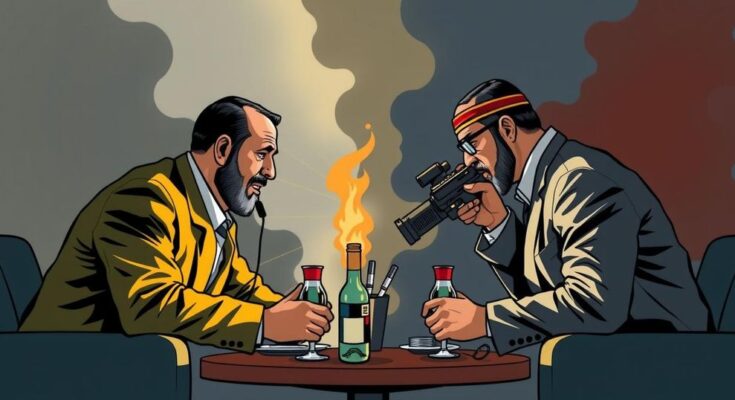The ceasefire between Israel and Hezbollah brings temporary relief to Lebanon, where casualties have been severe, but reveals divisions in Israel regarding its effectiveness. Prime Minister Netanyahu acknowledges the need for military resources replenishment, while political dynamics, influenced by US relations and Iranian support for Hezbollah, complicate the prospect of lasting peace in the region. The ongoing tensions in Gaza highlight that this ceasefire may not translate into broader resolutions for the Israeli-Palestinian conflict.
The recent ceasefire between Israel and Hezbollah offers temporary relief for Lebanon, where more than 3,500 civilians have perished in Israeli military strikes. Many Lebanese citizens, weary from the devastation, eagerly anticipated this ceasefire. In contrast, some Israeli officials are dissatisfied, fearing the ceasefire may allow Hezbollah to regroup and strengthen their position. Premier Benjamin Netanyahu, while presenting a firm stance against Hezbollah, acknowledged the need for a pause to replenish Israel’s military resources and allow civilians to return home.
The political landscape remains complex, as both Israel and Iran have vested interests in a stable ceasefire. Netanyahu’s administration has aligned closely with American support, indicating a shift in military strategy and emphasizing the need to counteract Iran’s influence over Hezbollah. The ceasefire is orchestrated against a backdrop of past diplomatic efforts at the UN, where previous resolutions sought peace based on troop realignments. However, skepticism remains within Israel, wherein public opinion is divided regarding the cessation of hostilities and their effectiveness against Hezbollah.
The delicate balance in the region raises questions about future conflicts. A ceasefire in Lebanon may not lead to a similar resolution in Gaza, a region marked by deeper issues surrounding territorial disputes and Palestinian self-determination. The upcoming political shifts, particularly with the return of Donald Trump to potential presidential duties, may further complicate these dynamics, inviting speculation about a new US approach to Middle East policy.
Thus, while the ceasefire is a hopeful pause for Lebanon, it does not address the enduring conflict between Israel and the Palestinians. The underlying political ruptures remain unaddressed, and military victories are not a substitute for lasting peace. If fundamental issues are not resolved, the Middle East may face continued cycles of violence and instability.
The article focuses on the implications of the recently established ceasefire between Israel and Hezbollah, set against a backdrop of profound human toll and socio-political complexities in Lebanon and Israel. The ceasefire offers temporary respite but raises tensions and skepticism regarding its long-term efficacy. Historical context is provided through references to previous conflicts, strategic shifts in military policy, and the geopolitical influence of actors such as Iran, highlighting how military decisions intertwine with regional diplomacy.
In summary, the ceasefire between Israel and Hezbollah represents a temporary reprieve for Lebanon amid significant loss of life and displacement. While it provides a momentary halt to hostilities, it fails to offer a comprehensive solution to the underlying conflicts that perpetuate violence in the region. The geopolitical landscape remains as precarious as ever, with unresolved issues between Israelis and Palestinians indicating that without addressing core grievances, peace may continue to elude the region.
Original Source: www.bbc.com




